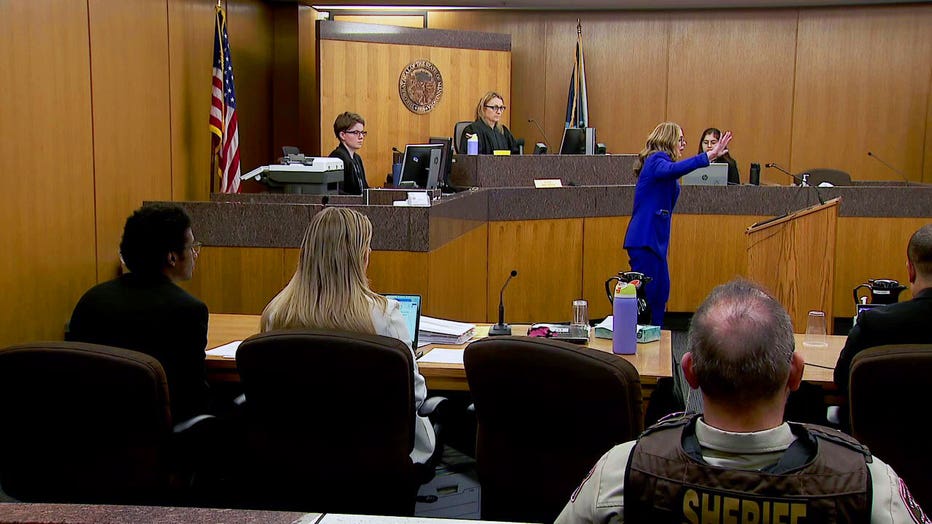In Minnesota courts first, FOX 9 cameras allowed in murder trial under new rules
Cameras allowed in MN court for murder case
In a first for Minnesota courts under new rules implemented this year, a judge allowed FOX 9 to have a camera inside the courtroom to document a murder trial from opening statements to the jury’s verdict.
(FOX 9) - In a first for Minnesota courts under new rules implemented this year, a judge allowed FOX 9 to have a camera inside the courtroom to document a murder trial from opening statements to the jury’s verdict.
The Minnesota Supreme Court cleared the way for greater transparency in courtrooms across the state following the unprecedented access granted during the high-profile trials of former police officers Derek Chauvin and Kimberly Potter at the height of the pandemic when security was high, courtroom attendance was limited and the public demanded justice. But state court judges still maintain great discretion when it comes to allowing cameras during criminal trials.
"Some trials are higher profile than others. But we have a stake in the outcome of every single trial because in every case, somebody's liberty is at stake," explained Jane Kirtley, a University of Minnesota media ethics and law professor, who has fought for greater camera access in state courts for decades. "And we in the public have an interest in knowing how that is being handled."
State of Minnesota vs. Dhaha Hassan
Hennepin County District Court Judge Amber Brennan allowed FOX 9 cameras into the recent murder trial of Dhaha Hassan.
Hassan was charged with two counts of murder, assault, and illegal possession of a ghost gun during a deadly road rage encounter with Randy Burris in Minneapolis last year. Hassan claimed self-defense, arguing he only opened fire when he feared for his life. The altercation unfolded along West River Parkway at Franklin Avenue on Nov. 18, 2023. Hassan testified in his own defense.
A jury ultimately found the 25-year-old guilty on several counts, including unintentional second-degree murder. Hassan is currently scheduled to be sentenced on Dec. 5.
"I forgot the camera was there," said Hassan’s defense attorney, Jessica Rugani when asked about the presence of a TV camera during the October trial. "Honestly, I kept my nose down, focused on my work. It was really unobtrusive in my opinion. I do not mind it at all."

Attorneys make arguments during the trial of Dhaha Hassan. (FOX 9)
FOX 9 camera in the courtroom
While FOX 9 cameras were allowed into the courtroom, there remains strict rules on what portions of the trial can be recorded. For example, witnesses can opt-out of having their testimony recorded – something that occurred often during Hassan’s trial. Only the defendant and his mother, who testified briefly, allowed recording. Otherwise, the camera had to be shut off. Recording was fully allowed during opening statements and closing arguments as well as the reading of the verdict.
"In other states, as judges and lawyers have become more comfortable with the presence of cameras, the more likely they are to make the rules more liberal. And by liberal, I mean that you create a presumption that cameras have as much of a right to be there as any member of the public or any member of the press," Kirtley said.
Judges can still say no
Statewide data show Minnesota judges have rejected at least a dozen media requests outright to allow cameras inside criminal trials this year. Judges have also denied cameras because news outlets missed strict timing deadlines.
Other reasons cited for a judge to deny a camera request included cases involving minor victims as well as domestic relationships between the parties. In the recent high-profile murder trial of Adam Fravel, the trial judge said no to cameras when loved ones of the victim, Madeline Kingsbury, objected to the recording of the trial. Fravel and Kingsbury shared two young children.
"If we have cameras all the time, which is what happens in states like Wisconsin, the public comes to take them for granted. And I think all the trial participants will, too," said Kirtley.

